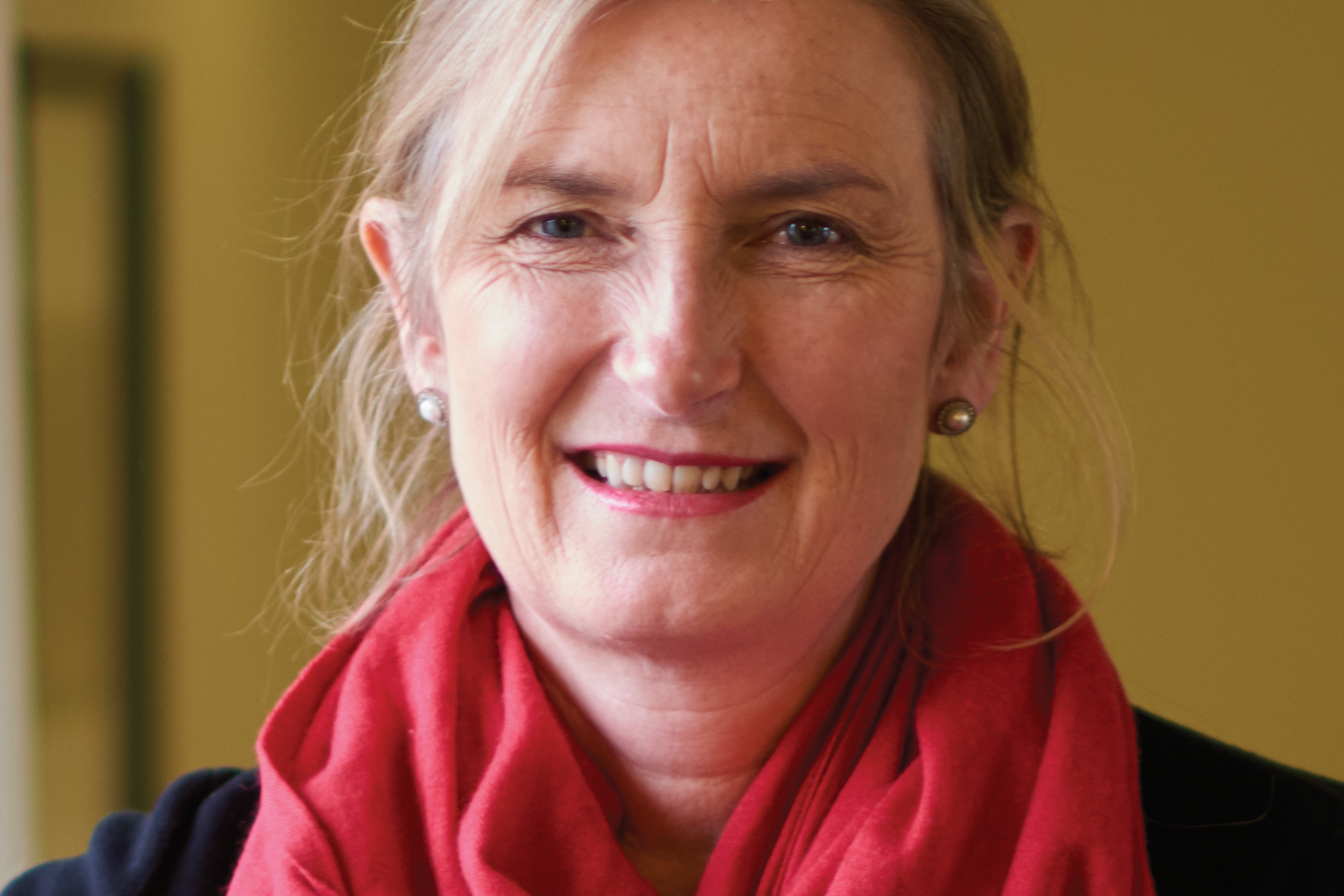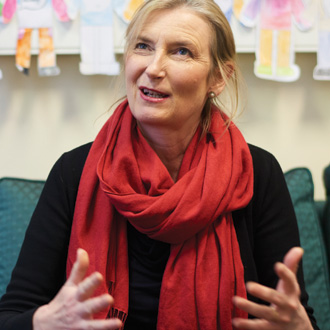‘We need the promises made to GPs delivered’


Sarah Wollaston 3×2
Dr Sarah Wollaston, one of the most influential GPs in the country, is there promptly to welcome Pulse via a back door to the Houses of Parliament, with a broad grin.
It is not difficult to imagine the Conservative MP in her former life, welcoming patients into her rural Devon practice.
But Dr Wollaston has had quite the year as a politician, performing a very public U-turn in her support for Brexit and frustrating ministers by accusing them of misrepresenting the amount of funding they have given the NHS. As chair of the House of Commons Health Committee, she has such an independent approach that it can be hard to remember that she’s a member of the same party as the health secretary and the Prime Minister.
In fact, she has reached across party lines to demand a new settlement for the health service. But whether or not her party will listen is a different matter.
You have criticised the Government for misleading the public on NHS spending. Why?
If the Government says it’s given £10bn to the NHS, it gives the misleading impression the NHS is awash with cash, when in fact anybody working in the service or observing it closely will know that’s absolutely not the case. Over the whole of the last Parliament the annual increase in Department of Health expenditure was 1.1% a year; compare that with the long-term average since the 1970s, which has been 3.8%.
That’s a very big drop over a sustained period of time and one that has come against the backdrop of a vast increase in demand and demographic change, so you have to be really clear about what that means in terms of the cost.
We have a serious issue here across health and social care and also an opportunity to properly come together and integrate those two systems – but this will need to be adequately funded. I’m not suggesting a Royal Commission, because that would knock this into the long grass further and we can’t afford to wait. I’m suggesting we have an honest discussion with the public about what it means and what it would cost, and then come to an agreement about how we’re going to put it into place.
That’s something I’ve met the Prime Minister about, alongside other MPs across the House. We’ve had that meeting and we’re going to continue discussions with her health team at Number 10 to see whether we can find a way of taking it forward.
For GPs, there has also been a shift to more conditions being managed in the community that would in the past have been managed in an inpatient setting. If you look at the significant decrease in the number of beds, that reflects an increase in what GPs are having to take on. The pressures are relentless in primary care at the moment.
Do you see NHS funding following that work?

Sarah Wollaston 330×330
Well, it should do. We know that what’s tended to happen in the NHS for decades has been that the secondary care system sucks in all the cash and primary care, psychiatry and mental health more broadly is where it tends to get sucked in from.
I think the GP Forward View is a really important and significant step in changing that. I think what we should focus on now is making sure the money is delivered. We need to be able to see clearly when extra promises to primary care and mental health actually end up being delivered to the front line.
Is the health committee going to be scrutinising the GP Forward View?
That’s something we’ll continue to look at. One of the things I think select committees are increasingly trying to do is hold the system to account for delivering on the recommendations of reports when they come out.
I would hope we will see proper delivery on some of the points about multidisciplinary teams, increasing the number of clinicians who choose primary care, trying to address the serious problem we have with GPs retiring relatively early and leaving – sometimes because of pressures to do with indemnity – and how we could perhaps see a role for GPs who are considering returning with a view staying on in some role or mentoring to help the next generation.
The Conservatives’ election manifesto pledged routine seven-day GP services for all. In light of the current pressures do you think that pledge should be put on hold?
It’s something the select committee looked at in some detail and we concluded that with the current pressures, it wasn’t possible with our existing workforce to staff routine out-of-hours Sunday clinics alongside existing out-of-hours centres, and co-locating GPs in A&Es. So what you could end up with is the unintended consequence of insufficient doctors available to staff your out-of-hours service; in fact I see there are reports of that happening around the country, as Pulse recently highlighted (‘One in 10 areas left without GP out-of-hours cover’).
So I think it would be far better for the Government to have acknowledged that access will vary from area to area and that we should allow local areas to come up with the most sensible and deliverable solution. And that will look different in a metropolitan area to a market town or a very rural area like Dartmoor where I used to practice. Because if you have a federation covering a very wide geographical area, sometimes you could end up with people having to travel further to a less accessible GP surgery than to their existing out-of-hours service.
You have also criticised the Government for scapegoating GPs over the A&E crisis. Why do you think the PM’s comments were unfair?
The pressure in primary care is relentless, and the reasons for the huge problems in A&E are multifactorial – they are more to do with the difficulties in social care. The flow through hospitals is hindered because of the lack of social care, so we know that’s crucial. We know there are issues within hospitals themselves about managing the flow. So to blame it on one group and imply we wouldn’t have this problem if only GPs were seeing people on Saturday and Sunday – I’m afraid that simply isn’t true. In my area, there are practices that just cannot recruit when 20 years ago they’d have had many applicants for every post. So I think it’s the wrong time to be singling out primary care for criticism.
And will the committee scrutinise minsters’ pledge to recruit 5,000 more GPs?
Yes, but it’s not just about recruiting, it’s about retention, it’s about returners. I think that as a profession we could do more to attract people back.
I speak as a parent of a doctor who’s been in Australia for a year and wanting to return to the UK, and you realise the NHS really doesn’t make that easy, and the hurdles to returning are quite high. And I think there’s a lot more the NHS could do to encourage people to come back into practice and make that flow back much more straightforward.
What made you choose to be a GP and how can GP recruitment improve?
I was in that generation of doctors that were working 120-hour weeks in paediatrics and then I had my own child and it wasn’t sustainable. I switched to primary care and I never looked back. I still think it is the most wonderful career path.
I think one of the things the NHS should go back to is making it easier for people to swap from other specialties because I think many people will choose a hospital speciality perhaps without initially considering primary care, then as they go through their time in hospital care, they start to think about general practice.
But it is a hurdle for people to have to then go back and start right at the beginning of a training programme when they might have quite a lot of experience in relevant fields. I think the ability to construct your own training scheme, as my generation was able to do, would be a good way to attract more doctors into primary care. I think it’s a great shame that was abandoned.
You changed your mind on Brexit before the referendum. Did the NHS have anything to do with that?
Yes, I think it was a whole host of reasons. On balance, I came to the conclusion that we would be better staying in the European Union, and I knew I would be very sad if I woke up on 24 June and found Britain had voted to leave. And I am still sad about that, but I had my vote on 23 June and now I think Parliament does have to respect the outcome.
As Health Committee chair, I’ll be chairing an enquiry into Brexit, and the first strand of this is going to be looking at the implications for healthcare. We’ll be considering the position of those [EU nationals] who work in health and social care – and that’s a very, very significant part of our workforce. My view is that they should be given an unequivocal right to remain.
CV
Age
55
Education
1986
Medicine and BSc in pathology at Guy’s Hospital, London, graduating from King’s College London
Career
1992 – Qualified as a GP.
Worked in rural Dartmoor as a GP trainer and was also an RCGP examiner and a police forensic examiner for Devon and Cornwall Police
2010
Elected Conservative MP for Totnes, Devon
2014
Elected chair of the House of Commons Health Committee









